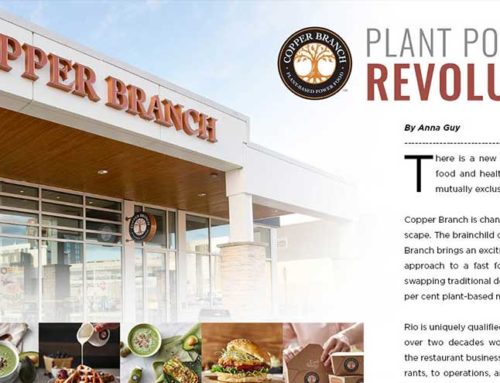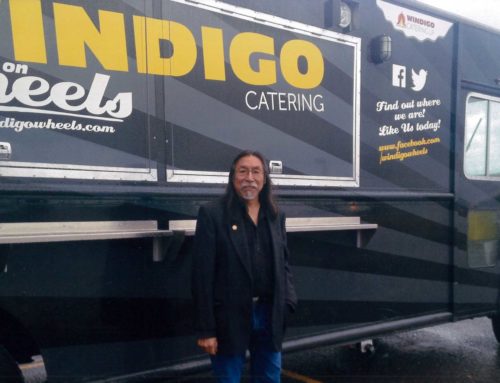Setting the Standard for Ethically Produced Pork in Canada
By Anna Guy
It’s a full circle moment for Vincent Breton. As President of Les Viandes du Breton, a division of the company his grandfather Napoléon founded, he is leading a movement to bring traditional farming techniques back to the pork industry.
When the company was founded in 1944, Napoléon was serving the local communities in rural Quebec with farm products and equipment. He knew the farmers he worked with and their operations personally, and worked hard to help them succeed.
In the 1960s, Vincent’s father, Lucien, was passed the baton and continued to develop the company by diversifying its activities with the addition of pork production, then processing to market its own brands. Today, Vincent Breton relies on the same values than the previous two generations; a steadfast commitment to working with small farms, for fresh and processed natural and organic products.
DuBreton is the North American leader in the market for specialty pork products and the first in the North American pork industry to be awarded the Certified Humane Raised and Handled® status by Humane Farm Animal Care. Fresh and processed natural and organic products are sold under the duBreton name throughout North America.
Agriculture has experienced a back-to-basics turn in the last 30 years. The industrialization not only changed the landscape of the industry but the landscape of the countryside. There was 30 per cent fewer farms, and fewer young people operating farms in 2011, than there was in 1991. As the number of farms shrank, the farming conglomerates grew through consolidation and significant turnover in farm assets. Larger farms mean an increased number of animals per farm which can sometimes mean very crowded, unstimulating environment in which they can’t engage in many of their natural activities.
As an alternative to this wide-spread practice, consumers have sought out companies like duBreton as an alternative to the larger conglomerates in the field for meat from animals raised in crate-free, or open housing.
“As one of the last remaining family businesses in a big market where there is a lot of concentration, we are trying to do things differently,” says Breton.
Small Farms
For the last 15 years, duBreton has focused its operation on producing Certified Humane® and organic pork, primarily in partnership with the Mennonite and Amish communities in Ontario and other local farmers in Quebec and the Maritimes, who were otherwise struggling to stay afloat.
DuBreton provides these farmers with a viable business alternative to selling out to big corporate factory farms. DuBreton enables the farmers to maintain their autonomy, increase their profitability and secure their future success, because they are always compensated fairly, without the risk of the uncontrollable highs and lows of pricing in the pork commodity market.
“Our goal is to save the smaller farms and make sure that smaller producers thrive in the meat business, while we protect the environment, and offer good quality products with no preservatives and no antibiotics. You know, the real thing!” says Breton. “We work for and with real people who want real food.”
DuBreton farms are typically 20 times smaller than the North American industry standard. “We work with farmers in remote areas to produce Certified Humane® and Global Animal Partnership (GAP 5-step program) or organic pork. When you produce niche pork, it is better to be in remote areas. Farms that are too close to each other increase the risk of disease being spread, which in turn requires the use of antibiotics.”
Major Announcement
In 2015, duBreton announced a major commitment to raise 300,000 more crate-free pigs by the end of 2018. This unprecedented move is one of the biggest announcements ever in advancing crate-free pork and represents an investment of more than $40 million to achieve more humane farming practices. The original target was surpassed to reach 340,000. To do so, duBreton partnered with 24 additional producers and built or refurbished 115 barns to comply with the standards of organic, Certified Humane® and GAP 5-step program, only in the province of Quebec.
“Our company is engaged in converting its business to organic production, so it just made total sense to commit to more humane and ethical way to raise the animals,” says Breton. “Also, demand is growing, so we wanted to keep our leadership position in North America.”
“DuBreton is setting the standard for ethically produced pork in Canada, throughout North America and around the world,” says Adele Douglass, founding executive director of Humane Farm Animal Care, the non-profit organization that grants the Certified Humane® certification. “We started working with duBreton in 2003 to begin the certification process and they were the very first pork company in Canada to receive Certified Humane® status. Consumer demand for meat that is ethically and sustainably raised is continuing to grow, and duBreton has been vital to advancing the pork industry.”
“There are no gestation crates or physical alterations [of animals]. The animals have three times more space, straw at every stage, and so on. It is a completely different mode of production. We are in another world,” says Breton.
What does this mean for the consumer? DuBreton brand means products with 100 per cent natural ingredients, livestock with access to roaming areas and shelter, no nitrates or nitrites, no added growth hormones and no GMOs in the organic line. “Consumers want to know where their food come from, the impact on environment and more and more, they are concerned by animal welfare. Organic infrastructures did not exist, so we had to invent it, build the organic network, farm network, and grain centre with chain of supply that guarantee integrity of product. It is a lot of investment. Now we have to stabilize our model before we go farther. We need to be responsible and sell the whole animal, from tail to nose. No waste. We have to find market for all the product and by-product.”
Distribution
Canadian stores such as Metro, Sobeys, Longos, as well as select Northeastern U.S. chains like Whole Foods and Chipotle Mexican Grill realise the benefit of their partnership with duBreton. According to the Canada Organic Trade Association, the total organic market in Canada, which includes food and non-food items, is now at $5.4 billion. Customers seek out companies like duBreton, and want to know the produce they are buying, help local communities and treat the animals and the land with respect.
“Cities are growing and, more than ever, the work farmers are doing is very important to keep the country alive,” says Breton. “Our connection with the smaller farmer is a part of our philosophy since my father started out, and it’s something we are very proud to maintain today.”
We have worked very hard for the last 20 years to develop something different to offer to people. We are proud of our farms and to show the way we raise the animal,” says Breton. Bringing in stringent certification, and humane processing methods has had great implications for the smaller producers.






